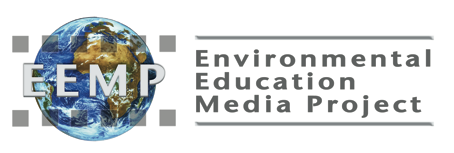Beyond Ecosystems by Roger Hove
It seemed so simple, it was so clear, the problem, the solution and a miraculous recovery in a reasonable amount of time. But then the questions started. How could the actions of hundreds of thousands, perhaps millions, of good intentioned people have caused such a situation to develop? They were simply doing what we do each day . . . doing their/our best to make the most of their/our situation.
All of these thoughts went through my mind as I sat enthralled by a presentation made by John Liu at the 2010 spring CEESA conference. I had attended the same presentation before, and was impressed with what I had seen and heard. This time, however, the thought process expanded, delved a bit deeper and has caused me to look at much of what we do in a different way.
If you have not seen or heard John Liu’s presentation, I encourage you to view it online . The story is remarkable. Over thousands of years, generation after generation of well-intentioned people had made a living from working the land of the Loess Plateau in China. The Loess plateau is an area which is roughly the size of Belgium. What had once been a lush plateau sustaining life over thousands of years had become an almost totally degraded ecosystem which could sustain the livelihood of fewer and fewer people and was causing tremendous damage well beyond the region through the deposit of silt into the Yellow River.
Through careful study, strong governmental support, and the efforts of thousands of workers, the ecosystem of the entire area was redesigned and redeveloped through terracing, the planting of trees and vegetation as well as the control of animal grazing to permit the ecosystem to regenerate itself. At this point nature took over and within fifteen years a lush sustainable ecosystem has once again emerged in what had become a desolate area. This event alone is a remarkable story of hope, of what can happen when man recognizes good intentioned errors of the past and takes determined action to correct them. In more concise language, on the Loess Plateau, good intentioned people had intervened and disrupted the ecosystem of the plateau to the point where it became almost useless to sustain life and was causing serious damage well beyond the region. Here is where generalization “kicked in.” In what other systems of life/nature are we intervening in natural systems with all good intentions without giving careful thought to the collateral negative outcomes we may be producing? A quick response will take us to air pollution, global warming, etc. But let’s think about other systems as well . . . social systems . . . family systems . . . relational systems.
What about the rush– to do more—only faster—quicker? The embracing of the concept of 24/7 for everything? The pushing of rigorous academics to earlier levels so our children can achieve more . . . earlier and better? I for one must admit I get caught up in this rapid rush and do recognize that I believe there is much “good” that comes from our efforts to make the most of our situation. However, John Liu’s presentation has caused me to take a bit more time and to look a bit more closely in an attempt to ensure that my good intentions do not inadvertently damage any of the important, life-sustaining systems of nature.








